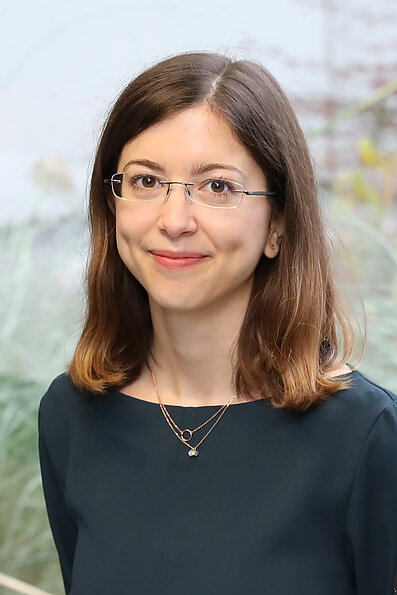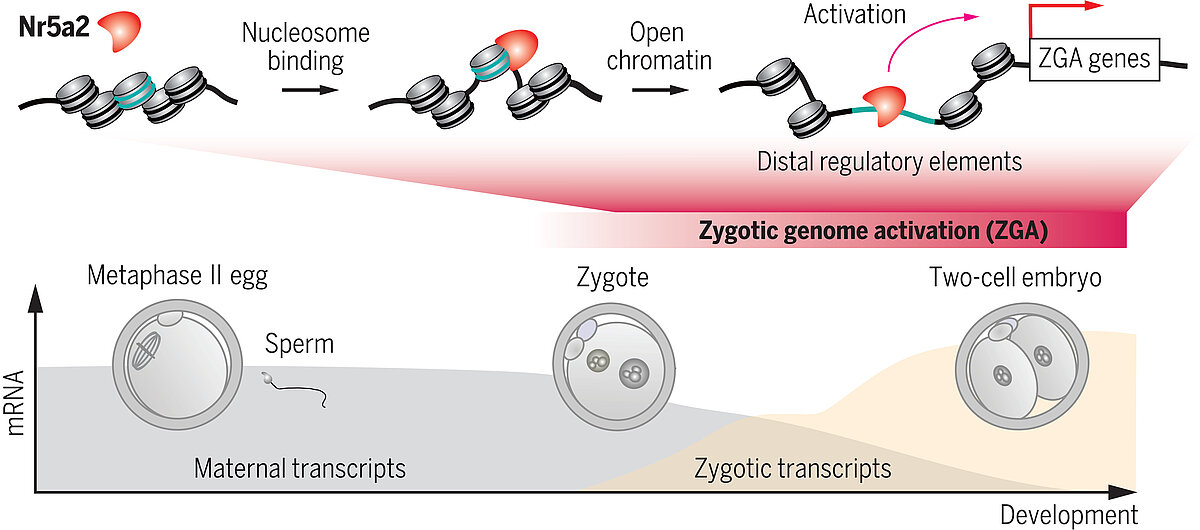Johanna Gassler receives ÖGMBT Life Science Research award

Johanna Gassler was awarded the 2023 ÖGMBT Life Science Research Award in the category Basic Science for her publication “Zygotic genome activation by the totipotency pioneer factor Nr5a2”. Gassler received the award at the annual meeting of the Austrian Society for Molecular Biosciences and Biotechnology (ÖGMBT) in Salzburg.
In her recent publication in Science, Gassler identified a key player in zygotic genome activation (ZGA) in mouse embryos. When an embryo begins to develop, it transitions from being controlled by maternal genes to its own genetic programming. This "awakening" is known as Zygotic Genome Activation (ZGA). Gassler’s research shows that Nr5a2 activates up to 72% of the essential ZGA genes in mouse embryos, making it a major player in this transition. This transition is a critical aspect of gaining totipotency and sets the stage for all subsequent developmental processes. Given that Nr5a2 exists in humans and is provided by the mother during egg formation, the role of Nr5a2 in development could be fundamental and understanding Nr5a2's role could open doors for regenerative medicine and stem cell biology.
Johanna Gassler is a former IMBA student in the lab of Kikue Tachibana, where Gassler completed her initial and crucial experiments. Further experiments were carried out at the Max Planck Institute of Biochemistry, where Gassler is currently a postdoc. Gassler is also a recipient of the 2019 L'ORÉAL Women in Science fellowship, which supported her work to gain insights into totipotency.

In receiving this year’s ÖGMBT Life Science Research Award, Gassler is joined by David Hoi, Research Institute of Molecular Pathology (IMP), and Klemens Kremser, The University of Natural Resources and Life Sciences. She is additionally joined by Alexander Hanzl, The Research Center for Molecular Medicine of the Austrian Academy of Sciences, and Matthias Hinterndorfer, IMP, who received the Life Science PhD Award Austria for their dissertations. With over 1,300 members, the Austrian Society for Molecular Biosciences and Biotechnology (ÖGMBT) is the largest Austrian association of scientists, students and currently 60 companies active in molecular biosciences, biotechnology and related areas.